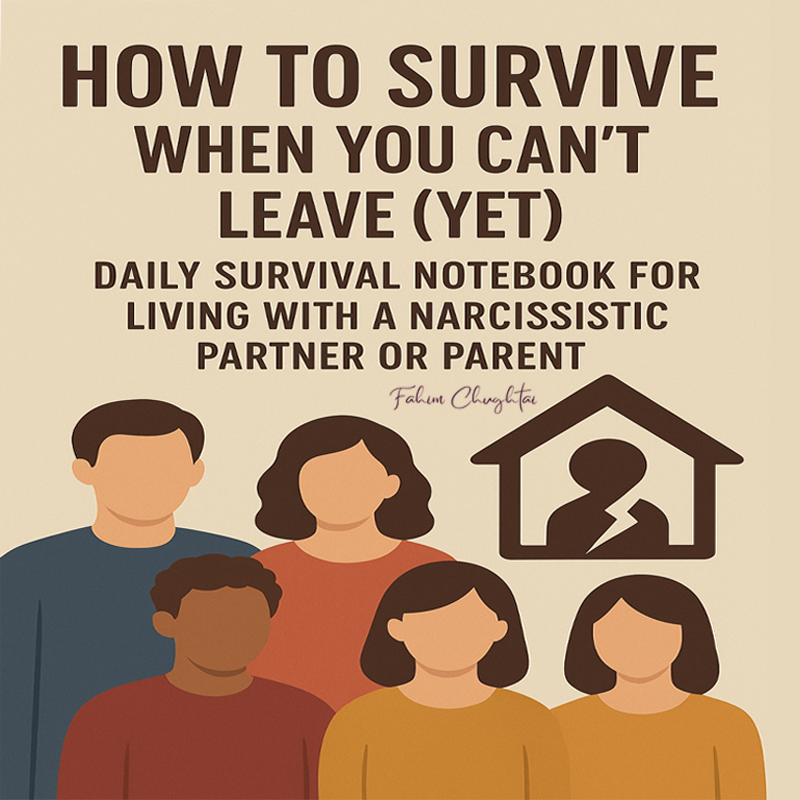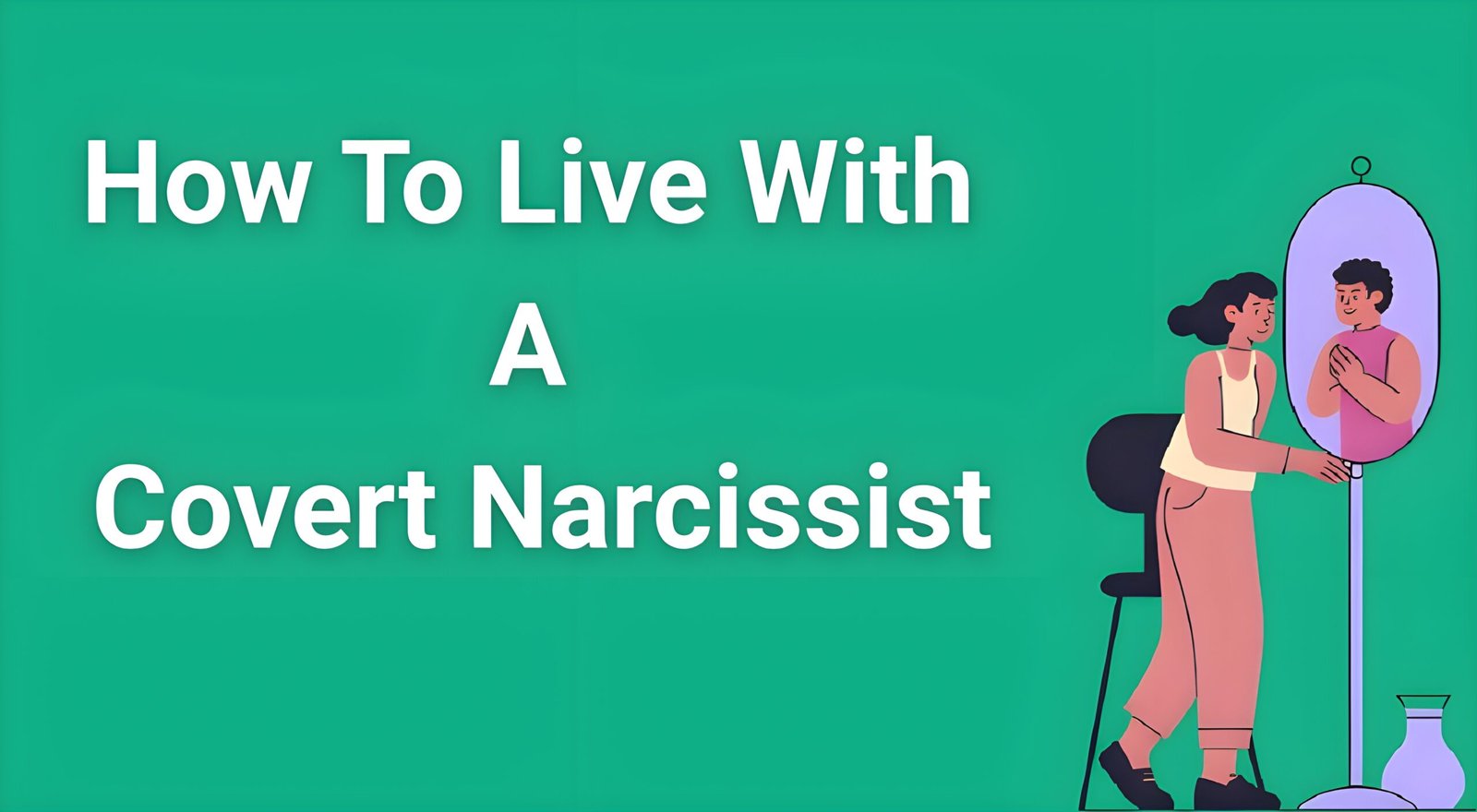The question “can a covert narcissist change?” haunts millions of people trapped in emotionally exhausting relationships. You’ve probably found yourself asking this very question at 3 AM, desperately googling for answers while your partner sleeps peacefully beside you, completely unaware of the emotional chaos they’ve created in your life.
- Understanding Covert Narcissism: The Hidden Manipulation
- The Neuroscience Behind Narcissistic Patterns
- When Change Seems Possible: The Deceptive Signs
- The Brutal Reality: Why Change Rarely Happens
- The 5% Exception: When Covert Narcissists Actually Change
- What This Means for Your Relationship
- Protecting Yourself: The Self-Care Imperative
- Setting Boundaries That Actually Work
- The Financial and Legal Realities
- When Children Are Involved
- The Recovery Process for Survivors
- Red Flags vs. Green Flags: Distinguishing Real Change
- Moving Forward: Your Action Plan
- Frequently Asked Questions
- Conclusion: Choosing Reality Over False Hope
The short answer is both devastating and hopeful: while change is theoretically possible, it’s extraordinarily rare and requires specific conditions that most covert narcissists simply cannot or will not meet. Understanding why requires diving deep into the psychology behind this complex personality pattern.
Understanding Covert Narcissism: The Hidden Manipulation
Before exploring whether a covert narcissist can change, we must first understand what makes them so different from their more obvious counterparts. Unlike grandiose narcissists who loudly demand attention, covert narcissists operate through subtle manipulation, playing the victim while secretly controlling every aspect of their relationships.
Covert narcissists excel at making you question your own reality. They use gaslighting techniques so sophisticated that even mental health professionals sometimes miss the signs initially. This hidden nature makes it incredibly difficult to recognize the abuse, let alone address it.
Am I Dealing With a Covert Narcissist — or Just Toxic Behavior?
The defining characteristics include:
Passive-aggressive behavior that leaves you constantly walking on eggshells, never knowing when the next silent treatment or subtle criticism will come. They’ve mastered the art of making you feel guilty for things that aren’t your fault.
Victim mentality that positions them as perpetually wronged by the world, including you. Every conversation somehow becomes about their suffering, their unappreciated sacrifices, or how misunderstood they are.
Covert superiority hidden beneath a facade of humility. They believe they’re special and different, but express this through subtle put-downs rather than outright boasting.
Emotional manipulation through strategic vulnerability. They share just enough of their pain to keep you hooked, believing you’re the only one who truly understands them.
The Neuroscience Behind Narcissistic Patterns
Recent brain imaging studies reveal that narcissistic personality patterns involve actual structural differences in the brain, particularly in areas responsible for empathy and emotional regulation. This neurological component partially explains why change feels so impossible for both the narcissist and their loved ones.
The brain’s neuroplasticity means that technically, these patterns can shift with intensive, specialized intervention. However, the very nature of covert narcissism creates a paradox: the traits that need changing are the same ones that prevent the person from engaging authentically in the change process.
When Change Seems Possible: The Deceptive Signs
Many people stay in relationships with covert narcissists because they occasionally witness moments that appear to signal genuine change. These glimpses of hope often include:
Moments of apparent vulnerability when they seem to acknowledge their impact on others. However, these confessions typically serve as manipulation tactics rather than genuine insight.
Promises to seek therapy or work on themselves, especially after major relationship crises. The key distinction lies in whether they follow through consistently or use these promises as temporary damage control.
Temporary behavioral modifications that occur when they fear losing important sources of supply (attention, admiration, or control). These changes rarely address underlying thought patterns.
Crisis-driven self-reflection following job loss, health scares, or relationship endings. While crises can sometimes catalyze genuine change, they more often produce short-term behavioral adjustments that fade once the immediate threat passes.
The Brutal Reality: Why Change Rarely Happens
The harsh truth about whether a covert narcissist can change lies in understanding the psychological mechanisms that maintain their behavior patterns. These deeply ingrained defensive structures serve crucial protective functions for the narcissist, making change feel like psychological death.
The Self-Preservation Instinct
Covert narcissists developed their manipulation strategies as survival mechanisms, often during childhood when vulnerability felt dangerous. Their entire identity revolves around avoiding the shame and inadequacy they fear lurks beneath their carefully constructed facade.
Genuine change would require them to:
- Face the very feelings they’ve spent decades avoiding
- Acknowledge the pain they’ve caused others
- Develop tolerance for being ordinary rather than special
- Learn to find worth without external validation
The Therapy Paradox
Even when covert narcissists enter therapy, several factors work against meaningful change:
Manipulation of the therapeutic process by presenting themselves as victims of circumstances or other people’s unreasonable expectations. They often become the therapist’s favorite client while family members feel increasingly gaslit.
Intellectual insight without emotional integration allows them to discuss their patterns academically while continuing to engage in them. They may become experts on narcissism while remaining unchanged.
Therapy shopping when therapists begin holding them accountable. They’ll often leave treatment claiming the therapist “didn’t understand” them or was “taking sides.”
Using therapy language as weapons to further manipulate loved ones. They learn psychological terminology and use it to pathologize others’ legitimate complaints about their behavior.
The 5% Exception: When Covert Narcissists Actually Change
While rare, genuine transformation can occur under very specific circumstances. Research suggests that approximately 5% of individuals with narcissistic patterns achieve meaningful, lasting change. This happens when several critical factors align:
Rock Bottom Recognition
True change often requires the covert narcissist to lose everything they value—relationships, career, health, or reputation—due to their behavior. This must be accompanied by genuine recognition that their actions caused these losses, not external circumstances or other people’s shortcomings.
Specialized Therapeutic Intervention
Generic therapy rarely succeeds with narcissistic patterns. Effective treatment requires:
Schema therapy that addresses the underlying emotional schemas driving the behavior Dialectical Behavior Therapy (DBT) for emotional regulation skills Trauma-informed approaches that address childhood origins without excusing adult behavior Long-term commitment spanning years, not months
Intrinsic Motivation for Change
The desire to change must come from internal sources rather than external pressure. Crisis-motivated change attempts typically fail because the motivation disappears once the immediate consequences fade.
Willingness to Tolerate Discomfort
Genuine change requires sitting with uncomfortable emotions like shame, guilt, and inadequacy without immediately defending against them. Most covert narcissists cannot tolerate these feelings long enough for therapeutic progress.
Covert narcissists are especially skilled at cultivating false hope about change, using therapy language and apparent self-awareness to keep you invested in their “growth journey.”
When you find yourself constantly analyzing their behavior for signs of progress or defending their efforts to concerned loved ones, you’ve likely become addicted to the hope they’ve carefully manufactured. Recognizing why you’re asking if they’ll change can help you break free from this psychological trap and focus on what you can actually control—your own healing.
What This Means for Your Relationship
If you’re wondering whether the covert narcissist in your life can change, consider these sobering realities:
Your love alone cannot heal them. Despite what romantic movies suggest, unconditional love and understanding typically enable rather than motivate change in narcissistic relationships.
Change must be internally motivated. External pressure, ultimatums, or consequences may produce temporary behavioral modifications but rarely result in lasting transformation.
Years of therapy may yield minimal results. Even with professional help, the timeline for meaningful change extends far beyond what most relationships can sustain.
Your mental health matters more than their potential. Waiting for someone to change while your own well-being deteriorates serves no one effectively.
Protecting Yourself: The Self-Care Imperative
Whether or not your covert narcissist ever changes, you need immediate strategies for protecting your mental health and emotional well-being. The confusion and self-doubt that characterize these relationships can leave lasting psychological impacts if not addressed.
Understanding the manipulation tactics becomes crucial for maintaining your sanity. Gaslighting, projection, and emotional blackmail create persistent cognitive dissonance that affects your ability to trust your own perceptions.
Sometimes, getting professional analysis of your specific situation can provide the clarity you desperately need. When you’re questioning your own sanity daily, having an expert examine the dynamics and validate your experiences becomes invaluable for your healing process.
Additionally, breaking free from the psychological chains that keep you trapped often requires understanding the neurological addiction-like bond that forms in these relationships. The push-pull dynamic creates trauma bonds stronger than conscious willpower, which explains why leaving feels impossible even when you know the relationship is harmful.
Setting Boundaries That Actually Work
Traditional boundary-setting advice often fails with covert narcissists because they’re experts at finding loopholes and turning your boundaries against you. Effective boundaries with covert narcissists require specific strategies:
Gray rock method involves becoming as uninteresting as possible to reduce their manipulation attempts. This means providing minimal emotional reactions and keeping conversations factual rather than emotional.
Information diet means severely limiting what personal information you share. Covert narcissists weaponize intimate details against you later, so protection requires strategic withholding.
Consequence-based boundaries focus on what you will do rather than trying to control their behavior. Instead of “You can’t speak to me that way,” try “I will leave the conversation when you use that tone.”
Documentation of incidents helps counter gaslighting attempts. Keeping a private record of concerning behaviors helps you maintain perspective when they try to rewrite history.
The Financial and Legal Realities
If you’re married to a covert narcissist or share children with them, the practical aspects of change become even more complex. Covert narcissists often use financial control as a manipulation tactic, making independence feel impossible.
Understanding your financial situation and legal rights provides crucial protection whether or not change occurs. Consulting with professionals who understand narcissistic dynamics becomes essential for navigating divorce, custody, or separation decisions.
When Children Are Involved
Parents wondering if their covert narcissistic co-parent can change face additional heartbreaking dilemmas. Children suffer tremendously in these dynamics, often developing anxiety, depression, or their own maladaptive coping mechanisms.
Protecting children requires understanding how covert narcissists use them as pawns in psychological warfare. They may engage in parental alienation, emotional manipulation, or inconsistent parenting that leaves children confused and insecure.
The question of whether a covert narcissist can change becomes even more urgent when children’s wellbeing hangs in the balance. However, waiting for change while children experience ongoing emotional harm serves no one’s best interests.
The Recovery Process for Survivors
Regardless of whether your covert narcissist ever changes, you will need significant support to heal from these relationships. The psychological impact often includes:
Complex PTSD symptoms from ongoing emotional abuse and manipulation Decision-making paralysis from constant gaslighting and reality distortion Hypervigilance about others’ moods and potential threats Identity confusion after years of being told your perceptions are wrong
Recovery requires specialized approaches that address these unique trauma responses. Traditional relationship counseling often fails because it assumes both parties are operating in good faith, which isn’t true in narcissistic dynamics.
Working through the specific patterns that kept you trapped becomes crucial for preventing future narcissistic relationships. Understanding why you were vulnerable to this type of manipulation helps build stronger defenses against future predators.
Red Flags vs. Green Flags: Distinguishing Real Change
If you’re evaluating whether your covert narcissist is genuinely changing, watch for these critical distinctions:
Red flags masquerading as change:
- Apologizing for your feelings rather than their actions
- Using therapy language to justify continued harmful behavior
- Making changes only when facing consequences
- Blaming their behavior on childhood trauma without taking responsibility
- Promising change but resisting concrete accountability measures
Potential green flags of genuine change:
Still Living With Them? You’re Not Helpless.

- Taking full responsibility without deflection or excuses
- Maintaining changes even when no one is watching
- Seeking therapy independently, not just when threatened
- Demonstrating consistent empathy over extended periods
- Making amends through actions, not just words
Even with genuine green flags, remember that lasting change typically requires years of sustained effort. The timeline for narcissistic personality change extends far beyond what most relationships can endure.
You’ve Seen the Patterns. Now Break the Bond.
Moving Forward: Your Action Plan
Whether you choose to stay and hope for change or prioritize your own wellbeing by leaving, you need a clear action plan:
Immediate steps:
- Document concerning behaviors and your emotional responses
- Establish a support network outside the relationship
- Secure your financial independence where possible
- Prioritize your physical and mental health
Long-term considerations:
- Develop clear criteria for what genuine change would look like
- Set non-negotiable timelines for seeing sustained improvement
- Create exit strategies in case change doesn’t materialize
- Work with professionals who understand narcissistic abuse dynamics
Frequently Asked Questions
Q: How long should I wait for a covert narcissist to change?
A: There’s no magic timeline, but most experts suggest that meaningful change in personality patterns takes 3-5 years of intensive therapy. However, you shouldn’t sacrifice your wellbeing waiting for uncertain outcomes.
Q: Can a covert narcissist change without therapy?
A: Genuine change without professional intervention is extremely rare. The self-awareness and emotional regulation skills required typically need therapeutic support to develop.
Q: Will having children motivate a covert narcissist to change? A: Unfortunately, parenthood rarely motivates genuine change in narcissistic individuals. They often view children as extensions of themselves rather than separate people deserving protection.
Q: How can I tell if their therapy is working?
A: Look for sustained behavioral changes over months, not just insights or promises. Real change manifests in consistent actions, especially when they think no one is watching.
Q: Is it worth trying couples therapy with a covert narcissist?
A: Couples therapy can be dangerous with covert narcissists, as they often manipulate the process to further gaslight their partners. Individual therapy for yourself is typically more beneficial.
Q: Can medication help a covert narcissist change?
A: While medication can address co-occurring conditions like depression or anxiety, there’s no medication that directly treats narcissistic personality patterns. Change requires psychological work, not pharmaceutical intervention.
Conclusion: Choosing Reality Over False Hope
The question “can a covert narcissist change?” deserves an honest answer: while theoretically possible, genuine transformation is so rare that building your life around this possibility often proves devastating for your mental health and future happiness.
Change requires the covert narcissist to voluntarily dismantle the very psychological structures that define their identity. They must choose to feel the shame, inadequacy, and vulnerability they’ve spent decades avoiding. Most importantly, they must sustain this commitment for years without external motivation.
Your wellbeing cannot depend on someone else’s willingness to change. Whether you choose to stay or leave, prioritizing your own healing and growth provides the only guaranteed path to a healthier future.
Remember that hoping for change while protecting yourself isn’t contradictory—it’s wisdom. You can love someone while acknowledging that their patterns may never shift enough to create the relationship you deserve.
The choice ultimately comes down to this: Will you invest your precious life energy waiting for unlikely transformation, or will you choose to build a life based on reality rather than potential? Only you can make that decision, but make it with clear eyes about what you’re truly choosing.
Your future self will thank you for choosing reality, even when hope feels more comfortable. True freedom comes not from someone else changing, but from accepting what is and choosing your response accordingly.






